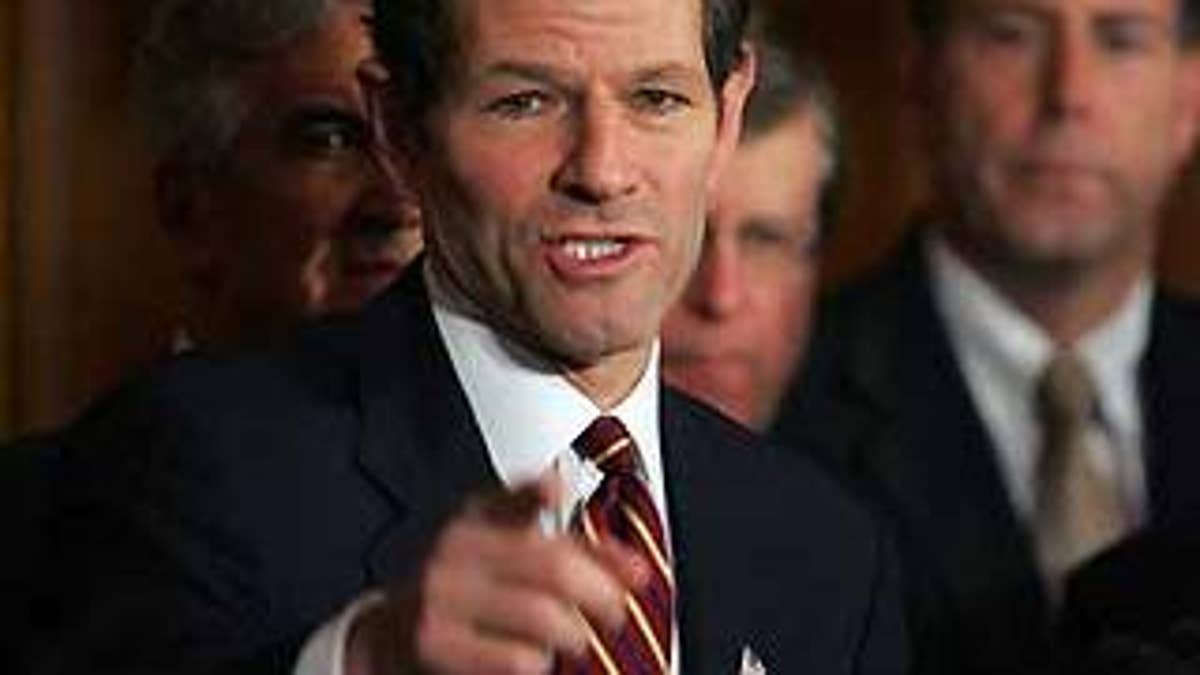
Spitzer as the next comback kid? Stranger things have happened.
Hookers and infidelity aside, Eliot Spitzer, once known as the "Sheriff of Wall Street," has won kudos for his observations on the present economic crisis, and some observers suggest conditions now are better than ever for him to return to the limelight -- if he wants to.
"I don't think he's interested in a political comeback at this point," Mark Weingarten, a Democratic Party activist and friend of Spitzer, told FOXNews.com. Weingarten, who recently spoke to Spitzer, said the former New York governor needed to take time away from the public eye last year to resolve personal issues after he was caught up in a prostitute scandal.
"I think he's now at a point where he can move on with his career," Weingarten said. "It's time to speak out. ... He feels a need to make a public contribution. This is a perfect opportunity for him to enter the public debate."
As New York's top attorney for eight years, Spitzer sent chills up the spine of people on Wall Street with investigations of white-collar crime, including a fraud case against insurance giant AIG, which led to the resignation of CEO Maurice "Hank" Greenberg and a $1.6 billion settlement.
Spitzer was elected governor by a wide margin in 2006, but he resigned in disgrace in March 2008 when it was revealed he was "Client 9" of a Washington, D.C., prostitution ring. Recently he has returned with articles on the Wall Street's role in the economic crisis and interviews on TV and radio.
But Douglas A. Muzzio, a political scientist at Baruch College and an expert on New York politics, said it would be "real difficult" for Spitzer to mount a political comeback.
"It's not only his problems as Client 9 but his problem as the ...steamroller," he said, referring to Spitzer's vow to roll over opponents of his agenda as governor. His approval ratings had dropped as his battles with the state Legislature intensified.
"He showed an inability to govern before the prostitution scandal," Muzzio said.
But Muzzio said that although Spitzer may never be able to win elected office again, he could be appointed to a study commission or advisory council.
"He's got cred," he said. "And in particular, he's got Wall Street cred."
Since December, Spitzer has written a column for Slate, offering a critique of the financial crisis, and granted his first interviews since falling from grace last year.
Spitzer told CNN's Fareed Zakaria that AIG and other giant financial firms deemed "too big to fail" need to be broken up. The next day, he expressed remorse and sorrow to NBC's Matt Lauer for the pain his personal actions caused his family.
"This is something that has caused excruciating pain to [my wife] and my daughters," the 49-year-old Spitzer said. "It's something that I carry with me every day because of the pain I've caused. And so I've tried to balance: The obligation to speak is vast but also the pain to my family has been enormous."
Some say Spitzer lacks the moral or ethical certitude to even speak out against the ills of Wall Street or Washington, but others disagree. Weingarten said no one could talk if lacking personal failings were the threshold.
Muzzio said, "I don't know that moral and ethical issues preclude him from being a savvy and sage analyst and commentator. We've had throughout history thousands of quote on quote great people with ethical and moral lapses."
Muzzio said Spitzer may be able to rehabilitate his image as an analyst, but he'll never the the Eliot Spitzer that people once thought could become the first Jewish president.
"There are certain dreams beyond him now," he said.




